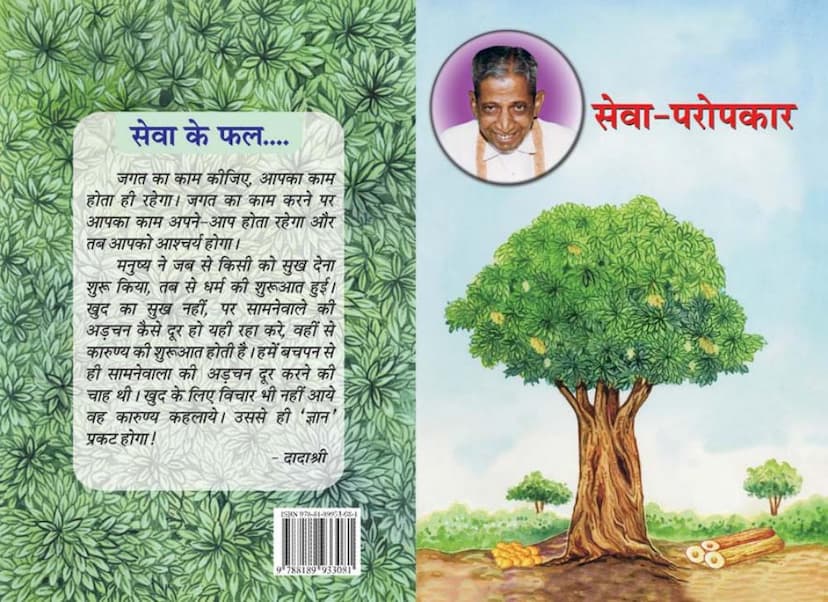Seva Paropkar
Added to library: September 2, 2025

Summary
The book "Seva Paropkar" by Dada Bhagwan, published by Mahavideh Foundation, is a compilation of spiritual discourse focused on the principles and practice of selfless service (seva) and altruism (paropkar) from a Jain perspective.
The core message of the book emphasizes that engaging in service for the welfare of the world naturally leads to the fulfillment of one's own needs and aspirations. It suggests that the true beginning of dharma (righteousness) lies in alleviating the difficulties of others, rather than seeking personal happiness. This selfless concern for others is termed "karunya" (compassion) and is seen as the path to the manifestation of spiritual knowledge.
Key themes and teachings within the text include:
- The Nature of Seva: True service is not about seeking personal gain or recognition. It is about genuinely wishing to remove the obstacles and suffering of others. This is illustrated through the analogy of a mango tree, which gives its fruits, leaves, and wood for the benefit of others and, through this, attains higher spiritual progress.
- Obliging Nature: A fundamental aspect of service is cultivating an "obliging nature" – a natural inclination to help and benefit others. This can manifest in various ways, from offering money and advice to simply being present and helpful.
- The Science of Giving: The book explains a hidden science: when one dedicates their mind, speech, and body to the welfare of others, all their needs will be met. Conversely, hoarding and selfishness lead to hardship.
- Service and Merit (Punya): Performing acts of service (paropkar) accrues merit (punya), which acts as a friend until liberation (moksha) is attained. Sin (pap), on the other hand, is likened to an enemy.
- True Service vs. Selfish Motives: The book distinguishes between genuine service and acts performed with underlying ego or the desire for fame. True service is performed without any expectation of reward or recognition, even from the recipient. The true spirit of service is to be unaware of one's own actions while serving.
- Service as a By-product: The text posits that spiritual development (production) naturally yields material prosperity (by-product) free of cost. Conversely, striving solely for material wealth without spiritual intent leads to a lack of true prosperity.
- Service to Parents and Gurus: The book strongly advocates for the service of parents and spiritual teachers (Gurus) as a fundamental duty, leading to peace, prosperity, and spiritual progress. The absence of this service can lead to unhappiness and hinder spiritual advancement.
- The Importance of Intention (Hetu): The intention behind an action is crucial. A high intention focused on the welfare of others leads to positive outcomes, including material and spiritual prosperity.
- Self-Service (Own Soul): While serving the world is essential, the ultimate spiritual goal is self-service, which means understanding one's true self as the soul (Shuddhatma). This self-realization is considered the highest form of service, as it prevents causing harm to any living being.
- Distinction between Social Service and Spiritual Liberation: Social service is described as a relative truth (relative dharma) and a part of worldly functioning. True liberation (moksha marg) goes beyond social service and is characterized by self-absorption (swa-ramanta) and freedom from ego.
- Overcoming Ego: The book emphasizes the need to overcome the ego, which is identified as the primary obstacle to spiritual progress. Even in service, the ego can lead to the notion of "I am the doer," creating limitations.
In essence, "Seva Paropkar" guides readers towards a life of selfless action, highlighting the profound spiritual and material benefits of dedicating one's life to the well-being of others. It encourages a shift in perspective from self-centeredness to a universal sense of compassion and service, ultimately leading to self-realization and liberation.